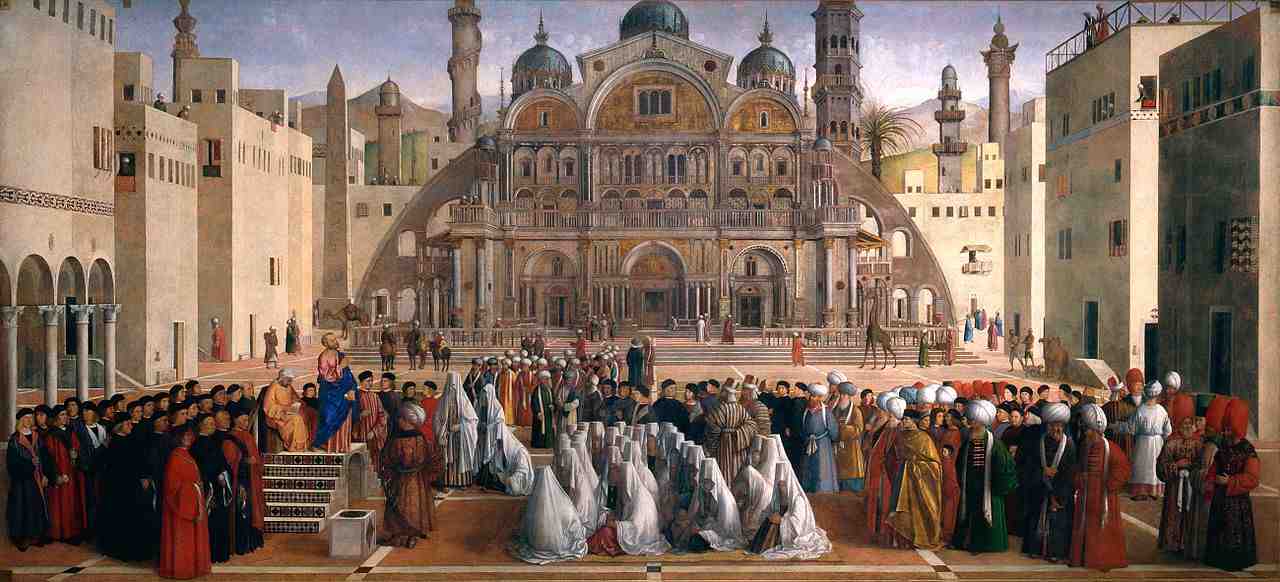The School of Alexandria and its Fathers (2)

In the previous article, we talked about the scholar Athenagoras and St. Pantaenus. In this article, we will continue our topic about St. Clement and the scholar Origen.
3 - St. Clement of Alexandria:
+ He was called Clement of Alexandria to tell him apart from Clement of Rome who lived in the first century.
+ He was born around 150 AD from pagan parents. He was always in search of God, settled in Alexandria and excelled in philosophy.
+ Converted to Christianity under the guidance of St. Pantaenus. He became his student and was famous for his depth of Biblical knowledge.
+ He was ordained a priest in Alexandria, and then he was appointed to be the director of the School of divinity in 190 AD after Pantaenus went to India. He continued to lead the school till 202 AD then went to Antioch and Jerusalem, and finally he returned to Alexandria where he departed around 215 AD.
+ He has many spiritual and theological writings most of which are now available in English. Some of his writings:
1 – Invitation to pagan nations to worship the true God.
2 – “Pedagogues” [The instructor], a book that educates the novice in the faith about biblical knowledge.
3 - “Stromata” [Miscellaneous], a collection of articles on philosophical topics and biblical facts.
He also has literary works in the following topics:
Feast of Passover [Easter] - Fasting - Patience - money – Church canons.
4 – Origen the Scholar:
+ During his time, the school of Alexandria was at its greatest.
+ Originally from Egypt, was born in Alexandria about 185 AD from Christian parents.
+ He loved the Bible since he was a child so he memorized most of its books. His father would sometimes kiss his chest while he was asleep to take a blessing from the heart where the Spirit of God dwells, and is full of the treasures of the divine word.
+ His father was martyred while he was a boy, and he had longings to be martyred with him. However, when he was about to give himself to martyrdom, his mother couldn’t find any other means to stop him except hiding all his garments so that he stays home to take care of his six little siblings. He sent a message to his father in prison encouraging him to be martyred, and said: “beware not to change your heart and leave Christ for our sake.”
+ He was appointed by Pope Demetrious the vinedresser to lead the theological school of Alexandria as a successor to Saint Clement. At that time, he was only 18 years old, nonetheless he revived the school and many became his disciples and later became teachers. He also drew in many pagans to the light of Christ.
+ He was known to lead a saintly, ascetic, and serious life so he became a role model to all his disciples.
+ Origen the scholar had many literary works in biblical interpretation and commentary as well as apologetic writings to the pagans, some of which was lost and other remained it its original Greek language or other languages. He also put the foundations of the scientific methodologies Christian theology and studying the Holy Scriptures through various translations in order to reach to the depth of their spiritual meaning.
+ He lived the last one-third of his life in Palestine where he established a school of divinity in Caesarea. In this school, many became his disciples such as St. Gregory the wonderworker.
+ There are disagreements about some of his writings; some condemn him although many view him as the most insightful intellectual that ever existed in the history of the Church.
+ Some call him the “ The prince of the Bible commentators.” St. Athanasius the apostolic described him as a “the Great teacher” while Didymus the blind and St. Jerome describe him that he is “ The greatest teacher of the Church after the Apostles.”
+ During the days of persecution stirred up by “Dachus” against the Church, he endured prison and many tortures for the sake of Christ. Then, he departed around 254 AD, and was buried in Tyre.
To be continued